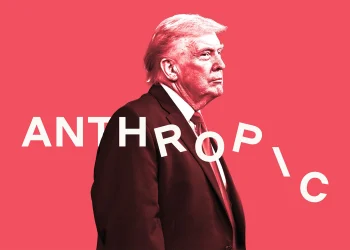The Kenyan government plans to deploy artificial intelligence systems that will analyze mobile money transactions to identify tax evaders in the informal sector. Dr David Ndii, President William Ruto’s chief economic advisor, made the announcement during the NCBA Economic Forum in Nairobi.
The new system targets the $8.6 billion (Sh1.3 trillion) in annual tax revenue lost to unreported income from informal workers. These individuals use M-Pesa and Airtel Money for business transactions but file nil tax returns.
“In a year or two, most of our taxes will be collected by algorithms and not by people,” Ndii stated. “We are not planning to collect taxes the old way.”
AI Exposes Income Patterns Hidden in Digital Transactions
The algorithm will analyse spending behaviours and transaction patterns to determine actual income levels. Ndii highlighted the discrepancy between reported income and lifestyle choices among informal workers.
“Those in informal jobs live in the same neighbourhoods, drive similar cars, and send their children to the same schools as those in formal employment. The only difference is that they file nil returns,” he explained.
Kenya’s high digital finance penetration gives the government access to detailed transaction data. Over 30 million Kenyans use mobile money services, creating a comprehensive digital trail of economic activity.
Kenya Revenue Authority Transforms from Enforcement to System Management
The Kenya Revenue Authority (KRA) will shift its role from manual tax enforcement to managing automated systems. This transformation comes as the agency prepares to hire 10,000 field agents nationwide to help citizens register as taxpayers and file returns.
These agents will work like telecommunications service representatives, providing basic tax services without expensive intermediaries. This will reduce administrative costs while improving service delivery.
KRA has invested heavily in digital infrastructure over recent years. The authority established the Micro and Small Taxpayers Department, led by Commissioner George Obell, to support small businesses with tailored compliance solutions.
Despite these efforts, KRA collected Sh1.093 trillion against a target of Sh1.125 trillion in the last fiscal year. The agency plans to collect Sh2.8 trillion this financial year.
Direct Consumer VAT Refunds Replace Manufacturer Benefits
Ndii announced plans to restructure Kenya’s Value Added Tax system using technology. The new approach will provide VAT refunds directly to consumers instead of manufacturers.
“Currently, VAT benefits manufacturers with the expectation that they will pass savings to consumers. That creates a VAT refund system which is very problematic,” Ndii said.
The direct consumer refund system requires individuals to register as taxpayers first. This creates an incentive for informal workers to voluntarily enter the tax system.
Parliament Approves Sh600 Million for Digital Tax Infrastructure
Kenya’s Parliament approved Sh600 million to upgrade KRA’s digital systems for real-time tracking of bank and mobile money transactions. This investment enables the AI system to monitor financial flows across multiple platforms simultaneously.
The upgraded infrastructure will integrate with existing mobile money APIs to create a comprehensive view of individual financial activity. Banks and mobile money operators must provide transaction data to support the new collection method.
Continental Impact Across Africa’s Informal Economies
Kenya’s AI tax initiative could inspire similar reforms across Africa, where informal economies contribute 30% to 60% of GDP according to the African Development Bank. Success in Kenya would provide a blueprint for other African countries facing similar revenue challenges.
The model addresses a common problem: how to tax informal sectors without stifling economic growth. Traditional enforcement methods prove too expensive and ineffective for small-scale transactions.
If implemented successfully, the system could help African governments fund development projects without increasing formal sector tax burdens or accumulating more debt.
Timeline and Implementation Challenges Ahead
The government plans to fully deploy the AI tax collection system within two years. However, several implementation challenges remain.
Privacy concerns around financial data monitoring may create public resistance. The government must balance tax collection needs with citizen privacy rights.
Technical integration across multiple financial platforms requires significant coordination. Mobile money operators, banks, and KRA systems must work seamlessly together.
Small business compliance costs could increase if the system creates additional reporting requirements. The government emphasizes voluntary compliance over punitive measures.
Kenya’s experiment with algorithmic tax collection is a significant shift in public finance management across Africa. Success could transform how developing economies capture revenue from digital transactions, while failure might set back AI adoption in tax administration.
The next two years will determine whether Kenya’s bold approach becomes a continental model or a cautionary tale about the limits of technology in tax collection.
















